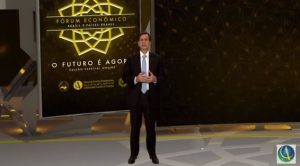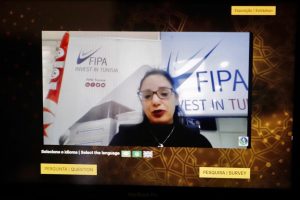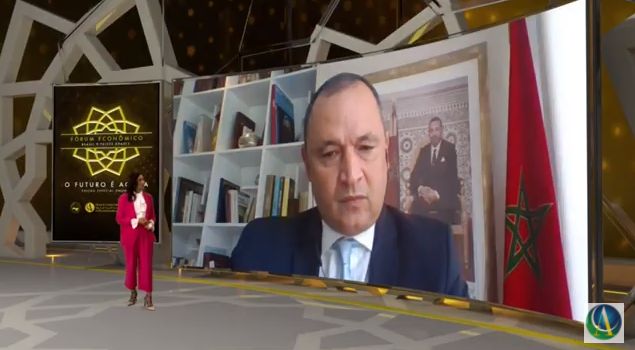Sao Paulo – Morocco prioritized human and social values when facing the COVID-19 crisis. That was the message given by the Chief of Staff of the Ministry of Industry, Investment, Trade and Green and Digital Economy of Morocco, Ryad Mezzour (picture above), at the opening of the last day of the Economic Forum Brazil & Arab Countries, whose debate dealt with relevance of environmental, social and corporate governance (ESG) in the current context. The forum is organized by the Arab-Brazilian Chamber of Commerce (ABCC).

Mezzour told how his country’s government applies governance. He said that in the pandemic the health of Moroccans was prioritized and the government helped the productive sector to ensure jobs and finance the markets, among other initiatives and mechanisms adopted. “We proved that we can face challenges and overcome them,” he said.
According to Mezzour, Morocco offered aid to 15 countries in the COVID-19 crisis. “Preserving human and social values might not be understood by everyone,” he said. The Chief of Staff also spoke about Morocco’s sustainable energy investments. According to him, prioritizing values such as those of ESG helped to meet the pandemic challenge.
ABCC Administrative Vice President Mohamed Orra Mourad opened the day with a global view on ESG in the current situation. According to him, the consumer stopped looking for only good, beautiful and cheap products and is aware of the companies’ policies in relation to the environment, impacts on climate change and sustainability.

“Currently, the decision to buy a product or invest is more complex and takes into account criteria of responsibility”, said Mourad. According to him, these concerns are in the daily lives of modern Brazilian and Arab consumers. “In the Arabian Gulf countries, the average consumer has demand standards similar to those of the European,” said Mourad.
The tunisian Jihan Ben Romdhane, Vice President at Tunisia’s Foreign Investment Promotion Agency (FIPA), presented her country as a good destination for international investments. She mentioned the free trade agreements that Tunisia has in Africa and Europe, the high local level of education, the innovations in research, and legal structure, among others. According to her, Tunisia is Africa’s third most innovative economy and has 3,600 foreign companies installed.
The forum is held by the ABCC in partnership with the Union of Arab Chambers and the Arab League. Journalist Renata Maron is the host. There is also an exhibition of companies and brands in parallel to the debates.
Check out the full coverage on ANBA.




